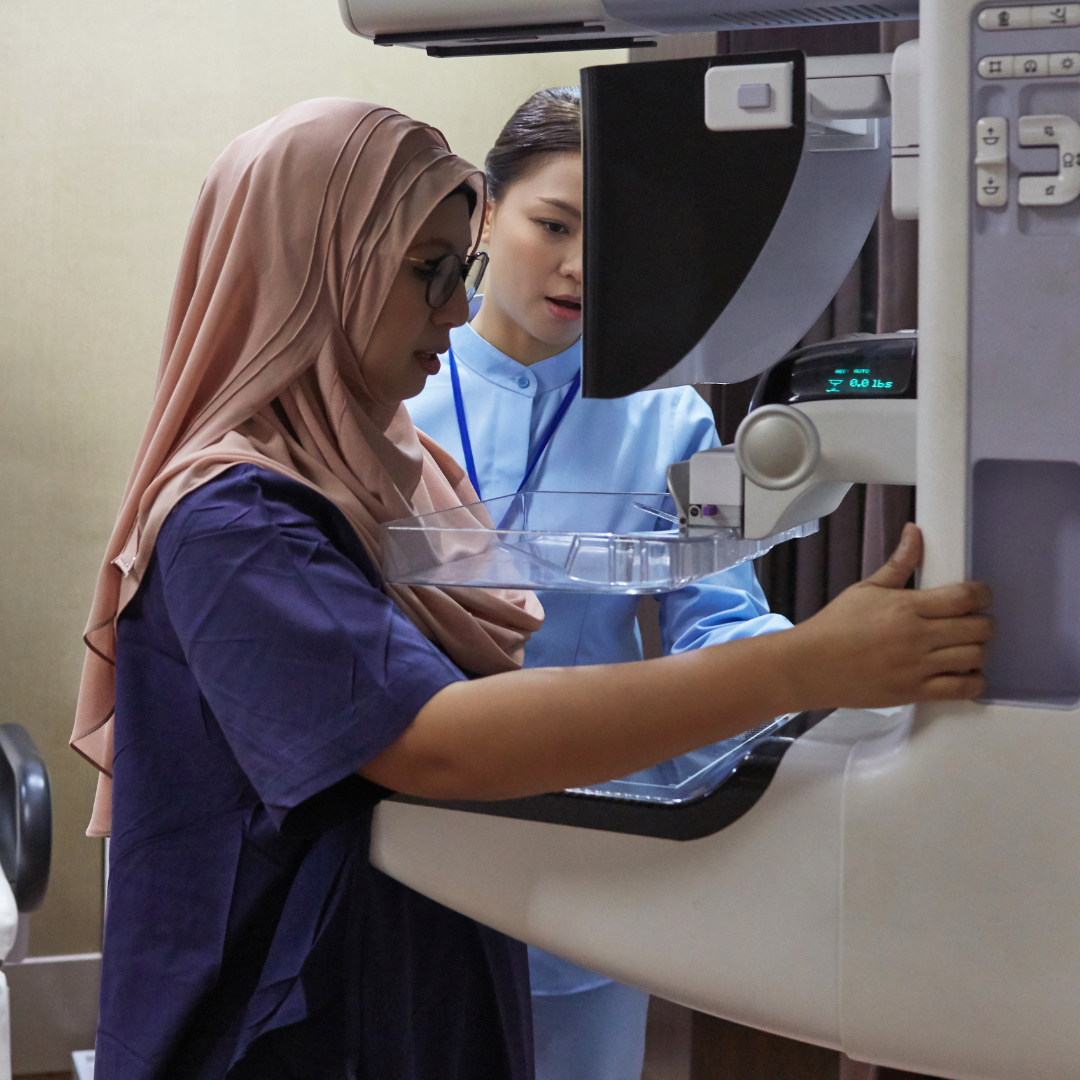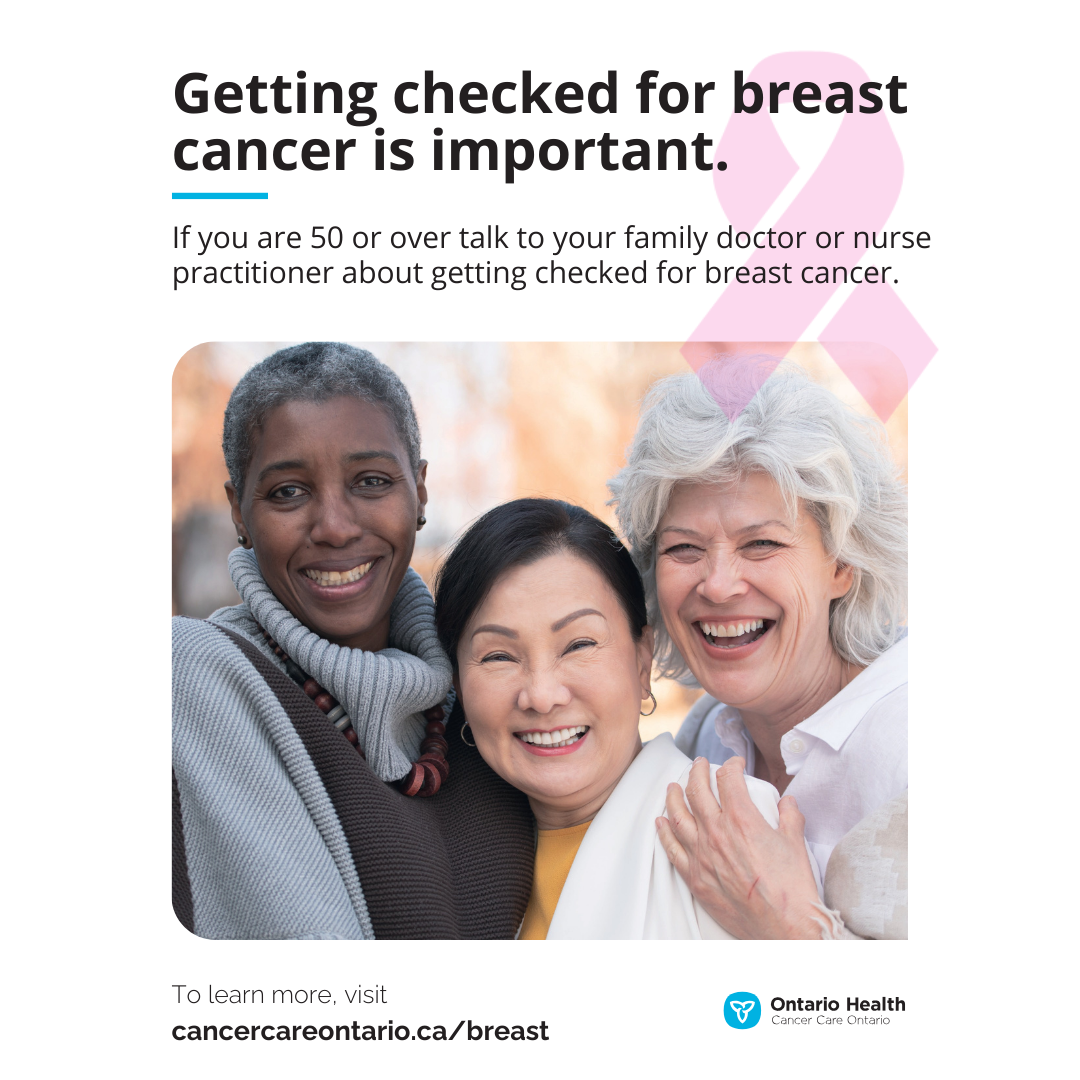REGULAR BREAST SCREENING IS IMPORTANT
From October 8, 2024, the Ontario Breast Screening Program (OBSP) expands the screening program to people ages 40 to 49. This means that Ontarians (women, Two-Spirit people, trans people, nonbinary people and women with breast implants) can begin routine breast screening (Mammograms) without a referral between the ages of 40 and 74 if they:
Most people in this age group who decide to get screened for breast cancer should get screened with mammography every 2 years
If you are ages 40 to 49, we encourage you to make an informed decision about whether to get screened for breast cancer. Talk with your family doctor, your nurse practitioner or a Health811 navigator about:
Visit cancercareontario.ca/breast to find your closest screening site and for more information about the Ontario Breast Screening Program. To book your mammogram, call 1.800.668.9304. A referral from a family doctor or nurse practitioner is not required.
Need this information in an accessible format?
1-877-280-8538, TTY 1-800-855-0511, info@ontariohealth.ca
Screening during pregnancy and lactation
Screening with mammography during pregnancy is safe and effective. If you do not want to get screened while you are pregnant, you can start screening 3 months after giving birth, even if you are still lactating.
***Contact your family doctor or nurse practitioner if you notice any changes in your breasts (chest), such as a lump or redness that does not go away, or changes to your nipple. Also, the effects of pregnancy or breastfeeding can hide the symptoms of breast cancer or cause them to be overlooked, so it is important to be aware of them. Changes to the breast (chest) are not always caused by cancer, but they should be checked right away.
Guide To A Better
breast screening Experience

Related links | More information on when to get screened
Cancer Care Ontario (CCO)
Breast cancer screening: https://www.cancercareontario.ca/en/types-of-cancer/breast-cancer/screening
Mammogram frequently asked questions:https://www.cancercareontario.ca/en/types-of-cancer/breast-cancer/screening/mammogram-faq
My CancerIQ: https://www.mycanceriq.ca/
The Ontario Breast Screening Program (OBSP) recommends that most women ages 50 to 74 get screened every two years with mammography.
Frequently asked Questions
Booking Form

